DUKORAL® can help prevent LT-producing ETEC diarrhea in travellers.1
ETEC produces two toxins, a heat-stable toxin (ST) and a heat-labile toxin (LT).3
ETEC is the most common pathogen causing diarrhea during travel for many areas of the world. Globally, 60% of ETEC isolates produce LT, either LT alone (27%) or the combination of LT and ST toxin (33%).4-6
Annually, ETEC is estimated to cause 220 million diarrheal episodes and approximately 380,000 deaths worldwide. These diarrheal episodes result primarily from the action of ST and LT enterotoxins, both of which are secreted by ETEC during infection.7-8
- DUKORAL® is used for LT-producing ETEC (either synthesizing LT alone or both LT and ST).1
- DUKORAL® is not indicated to prevent death.1
The average incidence of LT-producing ETEC differs by geographical travel destination.6,9,10

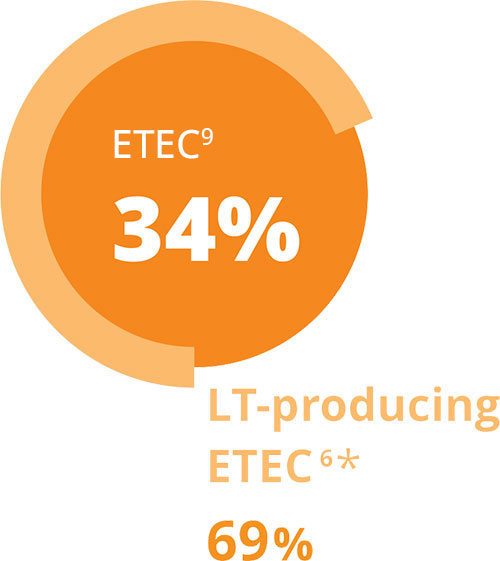
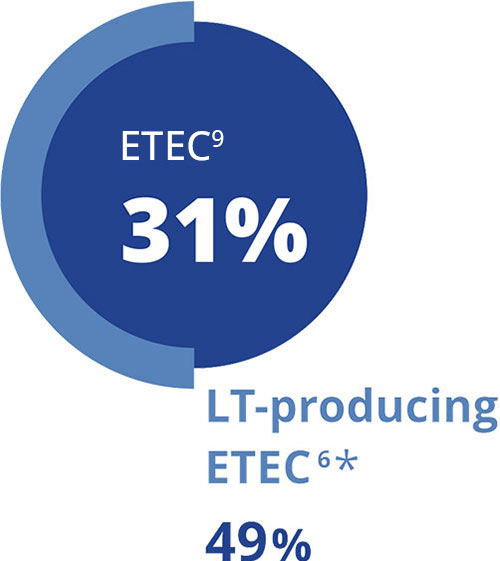
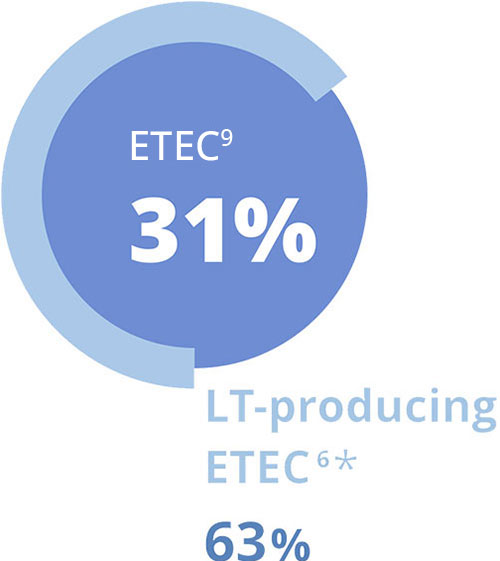
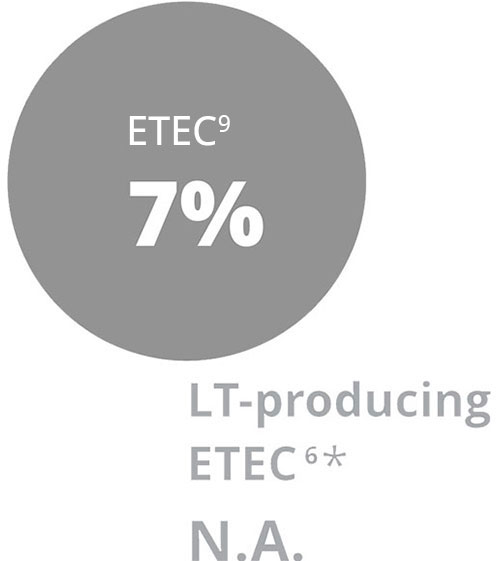
Adapted from Shah et al. 2009 and Isidean et al. 2011
* LT-producing ETEC: ETEC strains expressing LT alone or both LT and ST enterotoxins together (proportion among collected ETEC isolates).
* LT-producing ETEC: ETEC strains expressing LT alone or both LT and ST enterotoxins together (proportion among collected ETEC isolates).
LT-producing ETEC is transmitted by eating food or drinking water that is contaminated with enterotoxin strains of E. coli from human or animal feces.3
Infection with LT-producing ETEC can cause profuse watery diarrhea.11,12
Although ETEC infection is usually self-limiting, lasting 3 to 4 days, some episodes, particularly due to LT-producing ETEC go on to become persistent diarrhea lasting longer than 14 days.13
DUKORAL® should be used in accordance with official recommendations taking into account the epidemiological variability and the risk of contracting diarrheal illness in different geographical areas and in different conditions of travel.1
Causes and risk factors
Diarrhea caused by LT-producing ETEC can occur if travellers ingest food, water, or ice that has been contaminated.14
98% of travellers have been shown to make a food or water mistake within the first 3 days of their vacation. These include:15

Drinking beverages with ice cubes or crushed ice14

Brushing teeth with tap water14
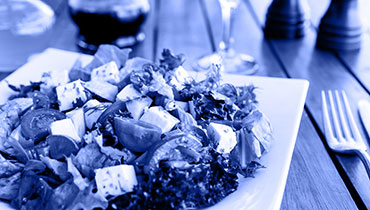
Consuming salads and uncooked vegetables14
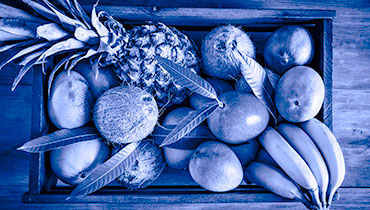
Eating fruits which cannot be peeled14
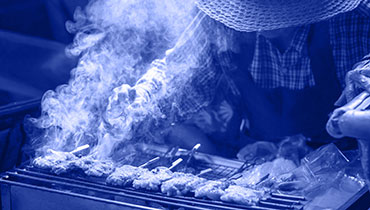
Sampling local cuisine from street vendors14
Populations with increased susceptibility to cholera and LT-producing ETEC diarrhea and who are at higher risk for more severe disease include:1
- Persons with achlorhydia
- Persons with previous gastrectomy
- Persons with history of repeated severe diarrhea
- Young children >2 years
- Immunosuppressed individuals due to HIV infection with depressed CD4 count or other immunodeficiency states
DUKORAL® should be used in accordance with official recommendations taking into account the epidemiological variability and the risk of contracting diarrheal illness in different geographical areas and in different conditions of travel.1
DUKORAL® should not replace standard preventive hygiene measures. Rehydration measures must be taken in case of diarrhea.1
Contact with contaminated food and beverages may be frequent and unforeseen.
DUKORAL® can help prevent and protect your patients from LT-producing ETEC diarrhea during their travels.1


